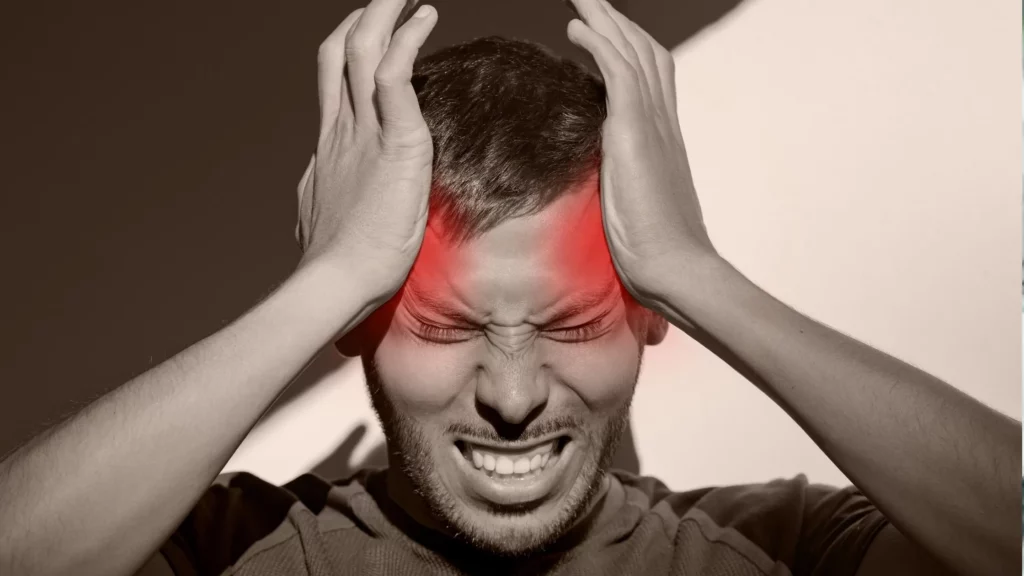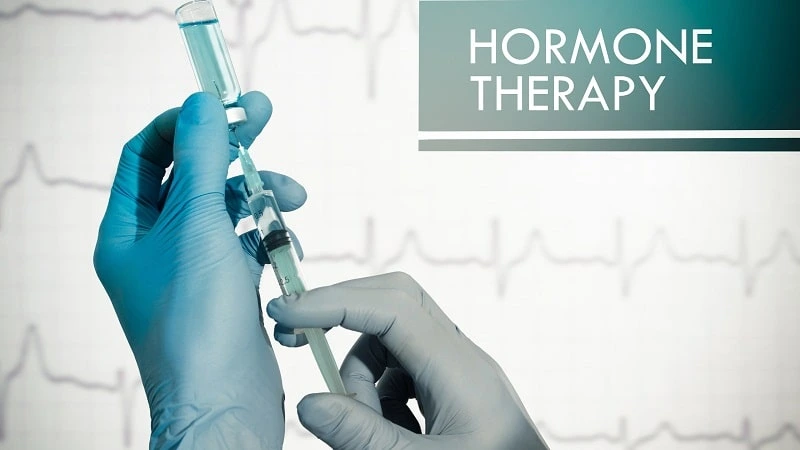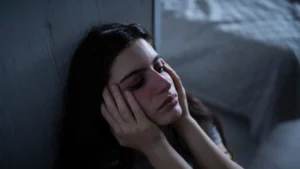As men journey through life, they encounter various phases that shape their well-being. One such phase that’s gaining attention is male menopause, also known as andropause. This natural progression involves hormonal changes that can influence physical vitality, emotional balance, and mental clarity. Wondering, “How long does male menopause last?” holds significance because it sheds light on an essential aspect of men’s health and aging.
Understanding the duration of male menopause equips men and those around them with insights into what to expect during this transformative period. Let’s explore the timeline of male menopause to embrace this phase with awareness and preparedness.
Symptoms of Male Menopause
Physical Changes
- Fatigue and Reduced Energy: Men experiencing male menopause often notice increased fatigue and reduced overall energy levels. This can impact their ability to engage in daily activities.
- Changes in Sexual Function: A decline in testosterone levels may lead to changes in sexual desire (libido) and performance. Some men might experience difficulties achieving or maintaining erections.
- Muscle Mass and Strength Loss: Decreased testosterone levels can contribute to a gradual loss of muscle mass and strength, making physical activities more challenging.
- Weight Changes: Some men might notice changes in body composition, including an increase in body fat and a decrease in lean muscle mass.

Emotional and Psychological Effects
- Mood Swings: Hormonal fluctuations during male menopause can lead to mood swings, irritability, and even feelings of depression.
- Anxiety and Stress: Some men may experience heightened levels of anxiety and stress as a result of hormonal changes and the challenges associated with this life stage.
- Lack of Focus: Cognitive symptoms may include difficulties with concentration, memory lapses, and a general sense of mental fogginess.
Read Also: How Long Does Menopause Last After Total Hysterectomy?
Sleep Disturbances
- Insomnia: Hormonal imbalances can disrupt sleep patterns, leading to difficulties falling asleep or staying asleep throughout the night.
- Sleep Apnea: Some men might experience sleep apnea, a condition where breathing repeatedly stops and starts during sleep, causing interruptions in restful sleep.
Physical Discomfort
- Hot Flashes: Although less common than in women, some men may experience hot flashes characterized by sudden waves of heat and sweating.
- Joint Pain: Joint pain and stiffness can occur as a result of hormonal changes and reduced muscle mass.
Changes in Hair and Skin
- Hair Thinning: Hormonal fluctuations can lead to hair thinning or loss, particularly in the scalp area.
- Dry Skin: Skin may become drier and more prone to irritation due to reduced oil production.
How Long does Male Menopause Last?
Male menopause, also known as andropause, is a phase characterized by hormonal changes that can influence various aspects of a man’s well-being. While the duration of male menopause varies among individuals, there are some general patterns to consider.
Onset and Progression
- Late 40s to Early 50s: Male menopause typically begins in a man’s late 40s to early 50s. This is when testosterone levels start to decline, leading to various physiological and psychological changes.
- Gradual Transition: Unlike a sudden event, male menopause involves a gradual transition. Hormonal changes occur over a period of time, leading to the emergence of symptoms.
Typical Duration
- Several Years: Male menopause doesn’t have a specific endpoint like female menopause. Instead, the phase can extend over several years. This means that the symptoms and changes associated with male menopause can persist for a significant duration.
- Varied Experience: The duration of male menopause can vary from person to person. Some individuals may experience symptoms for a shorter duration, while others might undergo a more prolonged phase.
Factors Influencing Duration
- Genetics: Genetic factors play a role in determining how long male menopause lasts for an individual. Family history can provide insights into what to expect.
- Lifestyle Choices: Men who maintain a healthy lifestyle with regular exercise and a balanced diet may experience milder and shorter-lived symptoms.
- Overall Health: Existing health conditions and overall health can influence the duration of male menopause. Managing chronic illnesses and staying in good health may contribute to a smoother transition.
Managing Male Menopause Symptoms
As men navigate the phase of male menopause, also known as andropause, there are various strategies and approaches that can help manage the symptoms and challenges that may arise.
Lifestyle Changes
- Physical Activity: Engaging in regular physical activity, such as brisk walking, swimming, or cycling, can boost energy levels, improve mood, and help maintain muscle mass.
- Balanced Diet: Consuming a diet rich in nutrients, including fruits, vegetables, whole grains, lean proteins, and healthy fats, supports overall health and well-being.
- Adequate Sleep: Prioritizing restful sleep by establishing a consistent sleep schedule and creating a comfortable sleep environment can alleviate fatigue and support mental clarity.
Read Also: How to Boost Immune System during Menopause?
Medical Interventions
- Hormone Replacement Therapy (HRT): Under the guidance of a healthcare professional, some men may consider hormone replacement therapy. This involves supplementing testosterone to address hormonal imbalances and alleviate associated symptoms.
- Medications: Certain medications may be prescribed to manage specific symptoms. For example, medications for erectile dysfunction can help improve sexual function.

Emotional Well-being Strategies
- Mindfulness and Meditation: Practicing mindfulness and meditation techniques can reduce stress, promote relaxation, and enhance emotional resilience.
- Therapeutic Support: Seeking support from mental health professionals, such as counselors or therapists, can provide a safe space to address emotional challenges and develop coping strategies.
Healthy Habits
- Limit Alcohol and Tobacco: Reducing alcohol consumption and avoiding tobacco products supports overall health and minimizes potential exacerbation of symptoms.
- Stay Hydrated: Drinking plenty of water maintains hydration, which is essential for overall bodily functions and well-being.
Conclusion
In conclusion, male menopause, or andropause, is a natural phase characterized by hormonal changes that impact various aspects of a man’s life.
While the duration of male menopause can vary, it generally extends over several years.
Understanding the onset, progression, and factors influencing the duration equips men and their loved ones with valuable insights.
Managing symptoms involves a multifaceted approach, including lifestyle changes, medical interventions, emotional well-being strategies, and healthy habits.
By embracing these strategies, men can navigate male menopause with improved physical and emotional well-being.
FAQs (Frequently Asked Questions)
1. What are the typical age range and signs of male menopause?
Male menopause typically occurs in the late 40s to early 50s. Signs include fatigue, changes in sexual function, mood swings, and cognitive challenges.
2. Is male menopause a sudden event or a gradual transition?
Male menopause involves a gradual transition as testosterone levels decline over time, leading to emerging symptoms.
3. Can genetics influence the duration of male menopause?
Yes, genetics play a role in determining how long male menopause lasts. Family history can provide insights into what to expect.
4. How can lifestyle changes help manage symptoms?
Engaging in regular physical activity, maintaining a balanced diet, and prioritizing sleep can alleviate fatigue and promote well-being.
5. What is Hormone Replacement Therapy (HRT) for male menopause?
HRT involves supplementing testosterone under medical supervision to address hormonal imbalances and alleviate associated symptoms.
6. Are there medications to manage specific symptoms of male menopause?
Yes, medications can be prescribed to manage symptoms like erectile dysfunction, and enhancing sexual function.
7. How can mindfulness and meditation help with emotional well-being?
Mindfulness and meditation techniques reduce stress, promote relaxation, and enhance emotional resilience during male menopause.
8. What role do healthy habits play in managing male menopause symptoms?
Healthy habits such as limiting alcohol, staying hydrated, and avoiding tobacco contribute to overall well-being and symptom management.
9. Is seeking support important during male menopause?
Absolutely, seeking support from healthcare professionals, therapists, loved ones, and support groups is crucial for effectively managing the challenges that arise during this phase.
Medical References
- Feldman, H. A., Longcope, C., Derby, C. A., Johannes, C. B., Araujo, A. B., & McKinlay, J. B. (2002). Age trends in the level of serum testosterone and other hormones in middle-aged men: longitudinal results from the Massachusetts male aging study. The Journal of Clinical Endocrinology & Metabolism, 87(2), 589-598.
- Morales, A. (2004). Andropause: a misnomer for a true clinical entity. The Journal of Urology, 172(2), 44-46.
- Traish, A. M., Haider, A., Doros, G., & Saad, F. (2018). Long-term testosterone therapy in hypogonadal men ameliorates elements of the metabolic syndrome: an observational, long-term registry study. International Journal of Clinical Practice, 72(12), e13235.



